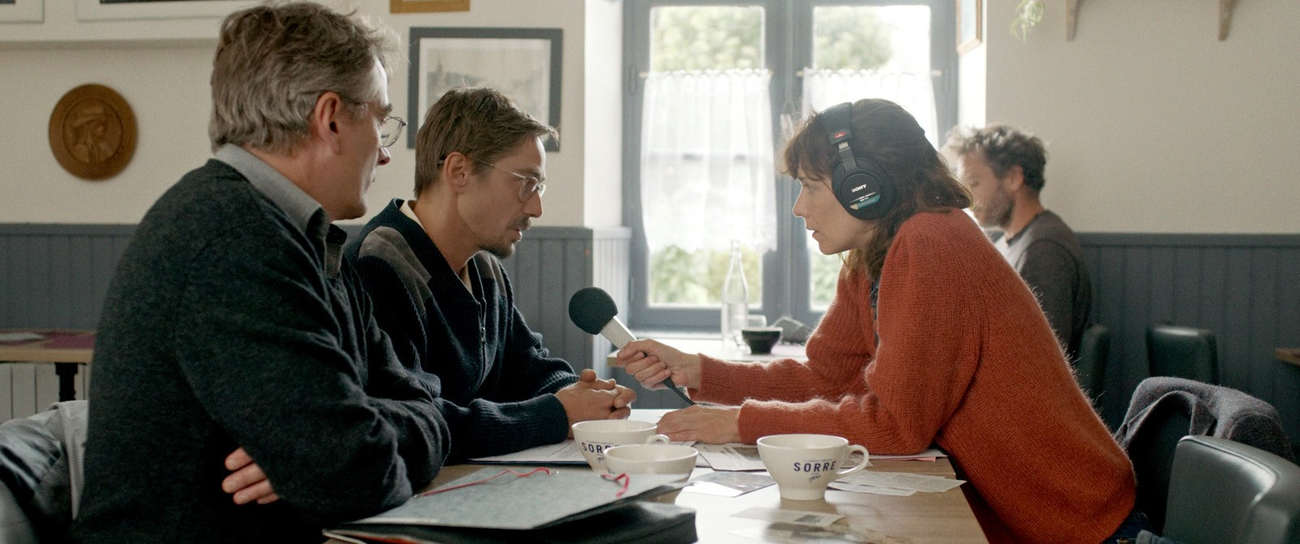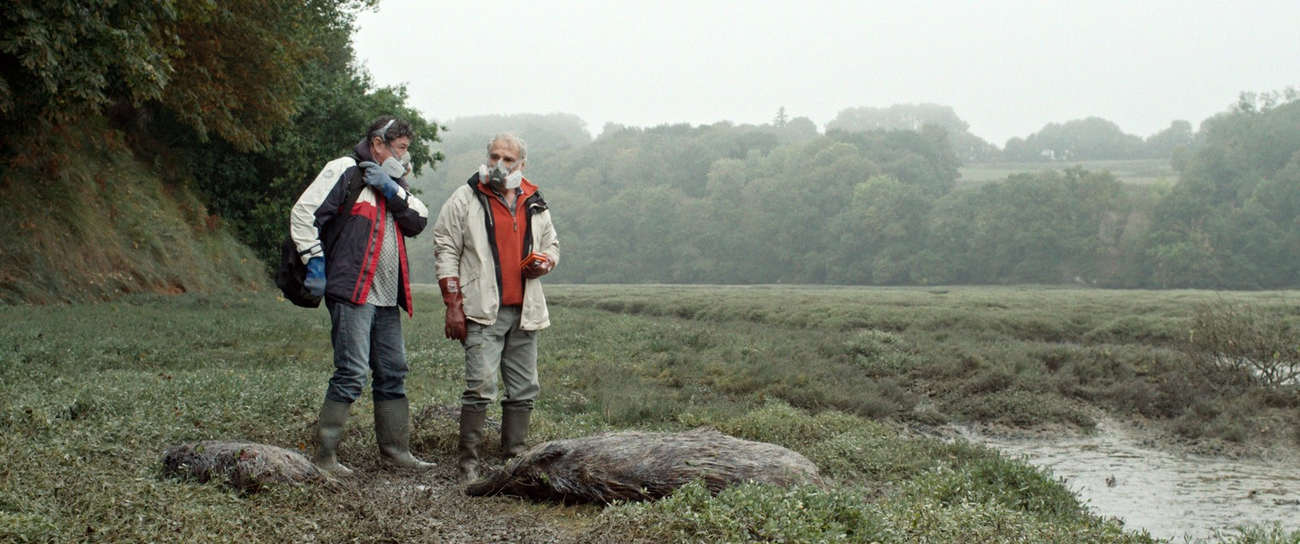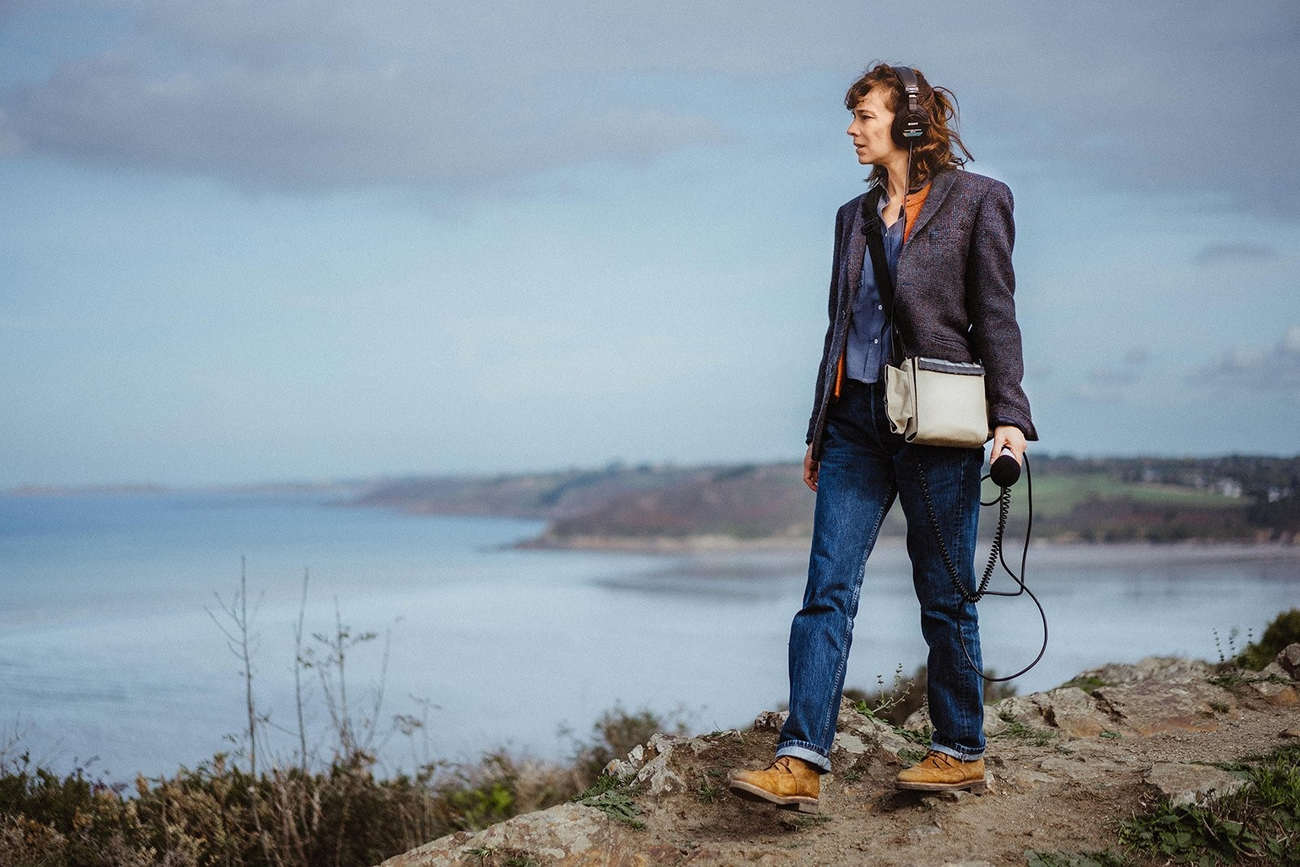Adapted from the comic strip, reports and life story of journalist Inès Léraud, Pierre Jolivet’s film recounts the authorities’ denial, pressure and intimidation, on a subject that is polluting the social climate in the region.
At the end of June, Nupes organized a preview screening of Pierre Jolivet’s film “Les algues vertes” (released July 12) at Les Baladins cinema in Lannion (Côtes d’Armor). Some of the spectators had already read the comic strip to which this feature-length film is adapted, “Algues vertes, l’histoire interdite”, illustrated by Pierre Van Hove and written by journalist Inès Léraud, whom they may also have heard on Radio-France. Captured by this story, the spectators heard nothing of the incident that took place in the cinema lobby, learning of it only after the end credits, during the debate following the screening.
“Yves-Marie Le Lay, president of the Sauvegarde du Trégor-Goëlo association and target of the discontent of a tiny group claiming to be members of the Young Farmers’ Union, was told by the police to leave the premises. In addition to Yves-Marie Le Lay, there were Serge Le Quéau from the Solidaires union (who was the first to speak to Inès Léraud about green algae), Viviane Troadec and Ludovic Brossard from the LPO (Ligue de Protection des Oiseaux), Benoît Allain from the Confédération Paysanne, and doctor Pierre Philippe.
A tarnished postcard image
Considered today as a whistle-blower, this doctor (played by Adrien Jolivet) appears at the beginning of the film, as the body of a jogger found on the beautiful beach of Saint-Michel-en-Grève arrives at the Lannion emergency room in 1989. It was “the beach of his childhood”, according to the emergency doctor, who requested an autopsy, which was never carried out. “The DDASS, the forerunner of the ARS, and the prefectural authorities put pressure on the hospital management to keep quiet,” asserts Dr. Pierre Philippe.

Green algae, which smells like rotten eggs when it decomposes and releases a toxic gas, has claimed other victims in the Côtes d’Armor region: To investigate, Inès Léraud (played by Céline Sallette) moved to Brittany with her partner (played by Nina Meurisse), from where she sent her Breton chronicles. Pierre Jolivet (director of “Ma petite entreprise”, “Fred”, “Force majeure”, “Mains armées”, “Les hommes du feu”…) chose to focus his film on “Inès’ personal adventure”, making her the central character, even shooting in the Breton house where she lived.
Her reports, the comic strip, and now the film (of which she is co-writer) are nourished by the testimonies collected by the journalist. And while you can hear the seagulls in the opening credits, the postcard image is tarnished by the green algae that covers some of Brittany’s bays. “You want to turn Brittany into a region like Lorraine,” a delegate from the FNSEA, the powerful farmers’ union, reproaches her in the film. The people of Lorraine will appreciate this.
“A militant film without falling into caricature”
A “scourge for Brittany”, an “ecological disaster”, “green algae” is poisoning Brittany in every sense of the word, and the subject is polluting the social climate in the region, pitting two irreconcilable worlds against each other: agriculture and ecology. To even mention it would be to give “a bad image of Brittany”, Europe’s leading agri-food region. Although the Brittany Region finally allocated 250,000 €uros to the film, after shooting, the production was unable to obtain all the necessary authorizations from municipalities weary of being associated with those pesky green algae.
In her quest to understand “the factory of silence”, Inès Léraud uncovered inconvenient truths, the denial of the authorities, the influence of agri-business lobbies, evoking pressure and intimidation, attracting insults and threats. “It’s an activist film without falling into caricature; it’s a fiction drawn from reality”, says ecologist Yves-Marie Le Lay, “It all started with the work of the associations (…) Sometimes the winds are against us, and sometimes they’re downwind, but we stay the course. I’m not resigned to the destruction of the common goods of water, land and sea.
“The film highlights the pressures on citizens,” adds Ludovic Brossard (LPO), “Green algae and pesticides are the result of letting agribusiness develop and letting the market do too much. “The political class doesn’t come off well in this film”, says Yves-Marie Le Lay, who will be at the Assemblée Nationale today, for a screening of Pierre Jolivet’s film organized by ecologist deputy Delphine Batho.
Patrick TARDIT
“Les algues vertes”, a film by Pierre Jolivet, starring Céline Sallette (out July 12).


